Blog-Versary Post by Kazza K: Why I Love Darker & Psychological Romance Books
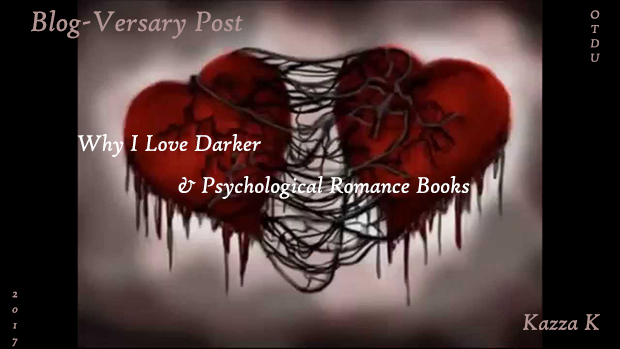
The reason I thought about writing this post for our blog anniversary is because I came across an author post written sometime this year by a popular author, one I have never read. I don’t even remember how I stumbled onto it. Anyway, the gist of the post was that the author couldn’t understand why people read dark MM or gay romance books. Books with themes like torture, infidelity, or angst/drama-ridden topics. Books, with or without HEAs, that went somewhere they didn’t feel was a happy place. They felt that the world was a bad enough place as is, so why would you want to read about more drama or darkness or angst? This actually follows on the back of a Goodreads post by another author, one I have read, who essentially said similar things.
Neither author said anything that could be construed as rude, but I do recall feeling slightly offended by the overall tone of the posts. I am one of those readers who love the books they didn’t see a particular need for. I don’t consider darker romance problematic if you enjoy them. If they cause personal triggers for some people, I hope that is when readers choose to stay away. That’s why we do need trigger/content warnings and disclosure, but that’s another topic for another day. I also noticed a few Twitter threads a while after where people were expressing their dislike of certain darker content and their incredulity at people wanting dark reading material in romance. It was along the lines of, why are darker books being lauded over sweet, happy reading? I was very, ‘wait…what?’ Because I call BS on that. If you look at Goodreads the overwhelming support is for commercial and sweet MM or gay romance. The more well known reviewers on Goodreads reading in the gay romance or MM genre prefer/review sweeter contemporary romance more often, if not to the exclusion of dark or deeply psychological. That is their choice and I am in no way disrespecting people’s choices. I certainly understand why people look for happiness in books. I read happy books too. However, I am calling out anyone who thinks that sweeter romance gets a raw deal. Because it doesn’t. It’s quite the opposite. Anything diverse or darker gets a hard pass by more than a few MM/gay romance readers.
Why I Like Darker, Psychological Romance Reading:
I love substance. I like books I can mull over. Ones where characters speak to me on a visceral level and don’t or won’t leave me alone. It’s almost like I have an innate desire to be able to sink my teeth into emotions. Most of the time when I read I look for meaning. I look to be able to analyse the characters and what is happening to them. I drive my friends and family to distraction sometimes because I have a need to talk out loud about possibilities and outcomes – and they have no idea who I am talking about. I’d love to be able to debate or chat about these books in more depth with like minded souls, occasionally I do online, but it is impossible to find a romance book club in real life here, especially one where they read a number of the books I do. It’s rare that a happy romance book can give me anything to discuss or feel overly connected to, with exceptions, of course. If an author makes a sweeter, happier book with layered characters, perhaps with more complex subtext, or with charming characters who may face a few of life’s problems, I definitely enjoy them more. Darker, psychological and diverse books give me something more substantial to think about and discuss – characters, worldbuilding, situations, plots, what shocked me… or why something didn’t.

I am not a small-talker. I can’t whip out much chit-chat about the weather or children or school or the neighbourhood. My reviews reflect that. Because that’s me. I need depth and analysis because I am a very analytical person by nature. When my children were young and a lot of mums were talking meal plans and laundry detergent, who was dating whom, bargains at supermarkets, or just about their individual children, I struggled immensely. If someone asked me about politics, law, behaviour, psychology, culture, medical research, modern history, I could talk at great length, but they definitely weren’t topics that came up in playgroup.
I can be, and certainly feel, at one with well written, intriguing dark and psychological books. When I’m feeling happy there are times I like to be given a darker experience. If I’m depressed, it can be a catharsis of sorts as I brood along with the characters, or perhaps identify with their experiences, at least understand them. Sometimes I can relate to the characters so much they are like family or friends. I also get to see some of the protagonists find hope and support and they can have a happy ending, which I do like, but that is very much dependent on the book’s storyline. My idea of a happy ending can also deviate from other people’s. I don’t necessarily require a HEA.
I’d classify myself as semi-retired these days, with more emphasis on retired than semi, but for nearly three decades I worked with other people’s problems or difficulties – depression, grief, anxiety, anger management, personality disorders, rape survivors, abuse survivors, domestic violence, relationship and family breakdowns, dysfunction and general family therapy. So why would I pick up romance or other genre books that are dark or psychological? Books that have darker behavioural situations, mental health issues, or abuse? I actually wondered myself why I didn’t try to escape more with fluffier books and constant and definite HEAs. But I have my reasons.
In order to be effective in any psychological practice, you need to have compassion but also maintain professional boundaries. I have always had the utmost respect for the people who walked through the door of my office. It is daunting to seek counselling and make changes. But to do my job well I had to be able to listen and to know how best to work with my client. You cannot help anyone when you have emotion choking logic and positive pathways. In order to provide someone with the tools to help, you need to be clear-headed and emotionally stable at all times. So there was always understanding with professional distance to be able to listen well and effectively provide the right support.
In books, it is different.
In books, I am different.
In books, I am allowed the freedom to be whatever I like without any boundaries.
In books, I don’t have to ask questions and formulate answers. The author does that for me.
In books, I can sympathise as much as I want. I can empathise the daylights out of a story and its characters. I can cry with them. I can yell with them. I can curse at them. I can be happy for some payback and vengeance. They can be people I want to protect like family or dear friends. I can even dislike them. I can revisit their whole set of circumstances again and again when I re-read these books and return to these book people I’ve formed a fictional and wonderfully unprofessional bond with. There are some characters who never leave me, I wonder how they are going and if they’re happy. Sometimes I know they are. Sometimes with some darker or more deeply psychological books I’m pretty sure they’re still living their dysfunction. Maybe they’re wondering how to get out of it, because the books I read have those scenarios as well. They are not all happy endings, but that’s okay, because sometimes that’s the way life works too. But more often than not there is a productive ending in the books I read. Maybe there’s a promise of things to come.

We don’t all have the same ideas on happy or healthy. Something I discovered being in practice for a few years, after throwing text books away, was that as long as no one is being hurt there can be different relationships to societal and psychological ‘norms’. It’s okay. But in fiction they can be somewhat more dysfunctional. For example, while I do not personally like obsessive real life behaviour, I love an obsessive character in dark fiction, and I delineate between light and dark here because in a sweeter/lighter romance obsessive behaviour can grate quite a lot. I’m not a violent person, but give me payback in my reading. Drama in my real life is kept to the barest minimum, but in books? Bring it on. Give me grit, because life can throw us lemons, so I can relate to that as a human being. Make the characters work for what they get. Make it tough. Give me some darkness along the road they are travelling and I’ll walk alongside them. Make me love them so much as to be emotionally invested and to care profoundly and deeply. Make me fearful for them or of them. Make their lives complex and complicated and do it well. Make the characters layered and nuanced in such a way I have to think about them. I must think about them. Make it that I can’t stop thinking about them. Ever. Make them fight for each other and what they achieve. Give me unapologetic and raw passion.

This is a condensed version of why I love darker and psychological romance books. This is why it is important to have choice. I read a diverse range of books, not always in the MM or gay romance genre, but these are the books that keep calling to me. The premise or concept I seek out is often dark, emotional, intense. I hope for the best and prefer it when characters find hope, but it’s not always the case.
Some psychological and some darker – some both – romance or genre fiction books that spring to mind and have stayed with me include the following –
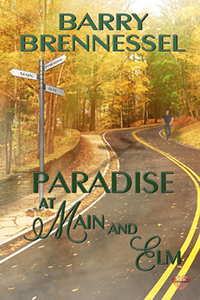 Paradise at Main & Elm by Barry Brennessel. (Psychological) This is gay fiction. Not dark per se. It is an ensemble cast but is always about two college-age MCs, Adrian and Ezra, who both face family dysfunction and mental health issues. Ezra comes from an incredibly difficult, lower socio-economic background, complete with immense toxicity and tragedy. Adrian, from an upper middleclass home with a suffocating, anxiety-inducing mother. This is such a believable, beautifully written story with characters that are complex and dear to me. I think of them often, including their apple orchard in New York.
Paradise at Main & Elm by Barry Brennessel. (Psychological) This is gay fiction. Not dark per se. It is an ensemble cast but is always about two college-age MCs, Adrian and Ezra, who both face family dysfunction and mental health issues. Ezra comes from an incredibly difficult, lower socio-economic background, complete with immense toxicity and tragedy. Adrian, from an upper middleclass home with a suffocating, anxiety-inducing mother. This is such a believable, beautifully written story with characters that are complex and dear to me. I think of them often, including their apple orchard in New York.
Quick to the Hunt by Cameron Dane (Dark and Psychological) A book about the effects of 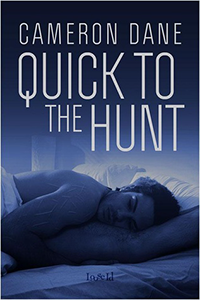 war on an individual, as well as PTSD and violence borne out of serving in the military. It is an erotic gay romance and, in my opinion, the best book Cameron Dane has written. It isn’t easy reading and over 80% of this book is not spent in a happy place. And while the ending is positive, there is no magic cure which made it even more believable. This is a book where the primary relationship is outside societal norms and I loved that the author went there.
war on an individual, as well as PTSD and violence borne out of serving in the military. It is an erotic gay romance and, in my opinion, the best book Cameron Dane has written. It isn’t easy reading and over 80% of this book is not spent in a happy place. And while the ending is positive, there is no magic cure which made it even more believable. This is a book where the primary relationship is outside societal norms and I loved that the author went there.
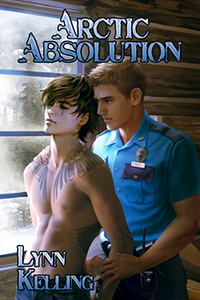 Arctic Absolution by Lynn Kelling (Psychological) Another erotic gay romance that tackles domestic violence, rape, maladaptive behaviour, murder and the inner demons of a traumatised young man, plus a State Trooper with some of his own deep-seated issues. These guys work very hard for what they get and there is a prequel and sequel. Both Arctic Absolution and Arctic Restitution, and the very tough prequel- Caged Jaye – make the MCs, Jaye and Dix, appreciative of everything life has thrown at them ultimately bringing them together.
Arctic Absolution by Lynn Kelling (Psychological) Another erotic gay romance that tackles domestic violence, rape, maladaptive behaviour, murder and the inner demons of a traumatised young man, plus a State Trooper with some of his own deep-seated issues. These guys work very hard for what they get and there is a prequel and sequel. Both Arctic Absolution and Arctic Restitution, and the very tough prequel- Caged Jaye – make the MCs, Jaye and Dix, appreciative of everything life has thrown at them ultimately bringing them together.
Only the Lonely by Lynn Kelling (Psychological) Takes a closer look at part of what shaped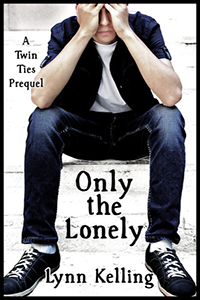 a younger Evan Savage from the Twin Ties series, a prequel to his life before Brennan and Alek and Luka. Childhood abuse, underage predatory behaviour and suicide ideation/attempts form the basis of this gritty book. Not a happy book, not a sad ending but there is more to follow because this is a prequel, but I know Evan’s life is looking up while still a work in progress.
a younger Evan Savage from the Twin Ties series, a prequel to his life before Brennan and Alek and Luka. Childhood abuse, underage predatory behaviour and suicide ideation/attempts form the basis of this gritty book. Not a happy book, not a sad ending but there is more to follow because this is a prequel, but I know Evan’s life is looking up while still a work in progress.
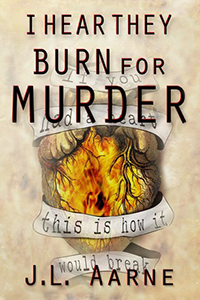 I Hear They Burn for Murder by J.L. Aarne (Dark and Psychological) This book is an intensely dark gay crime romance with a psychopath as the primary MC. A brilliantly written book with extremely dark themes at the heart of the story, featuring torture, murder, cannibalism, mental health issues, and double brocest, plus some paranormal activity just beginning. It is by no means easy reading, but it is hellishly addictive.
I Hear They Burn for Murder by J.L. Aarne (Dark and Psychological) This book is an intensely dark gay crime romance with a psychopath as the primary MC. A brilliantly written book with extremely dark themes at the heart of the story, featuring torture, murder, cannibalism, mental health issues, and double brocest, plus some paranormal activity just beginning. It is by no means easy reading, but it is hellishly addictive.
Infected Thoughts by 5amWriterMan (Psychological and Dark) A gay erotic thriller with 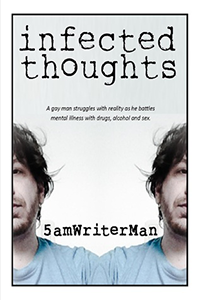 alcohol/drug abuse and mental health issues front and centre. This book is not a happy book at any stage and I still remember the strong emotions as I watched someone emotionally spiral out of control while another looked for them. How several lives were ruined. A book without a HEA, one that made me grieve, but I would have felt it wasn’t true to the writing any other way.
alcohol/drug abuse and mental health issues front and centre. This book is not a happy book at any stage and I still remember the strong emotions as I watched someone emotionally spiral out of control while another looked for them. How several lives were ruined. A book without a HEA, one that made me grieve, but I would have felt it wasn’t true to the writing any other way.
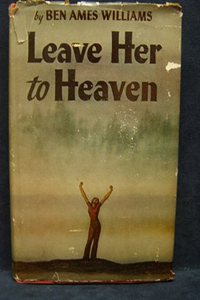 Leave Her to Heaven by Ben Ames Williams (Psychological) A suspenseful book, written and set in the 1940’s, about (insta-love) falling deeply for someone who is beautiful and clever but not at all who you think they are. It also plays to the fact that someone as beautiful as Ellen is couldn’t be flawed or brutal, and that still holds truth today. However, female sociopathy and obsession weren’t de rigueur at the time so it’s extra fascinating and a good psychological book. Maybe a little black and white or angelic versus evil, and you have to remember the time it was set in, but a book that definitely put the characters and me through the emotional wringer.
Leave Her to Heaven by Ben Ames Williams (Psychological) A suspenseful book, written and set in the 1940’s, about (insta-love) falling deeply for someone who is beautiful and clever but not at all who you think they are. It also plays to the fact that someone as beautiful as Ellen is couldn’t be flawed or brutal, and that still holds truth today. However, female sociopathy and obsession weren’t de rigueur at the time so it’s extra fascinating and a good psychological book. Maybe a little black and white or angelic versus evil, and you have to remember the time it was set in, but a book that definitely put the characters and me through the emotional wringer.
Thanks to the authors who give me what I need. I appreciate the journey and the escapism. To those who say darker and psychological books have no place in romance, I don’t agree, for all of the reasons I’ve talked about on this post. I think these books can co-exist with sweet in the same genre very nicely. This blog is proof-positive of that when you look at what we read/review.
Happy 5th to On Top Down Under Book Reviews. Here’s hoping to (at least) a decade of Cindi and I, and our guest reviewers, reading and reviewing plenty of books on here.
Cheers!

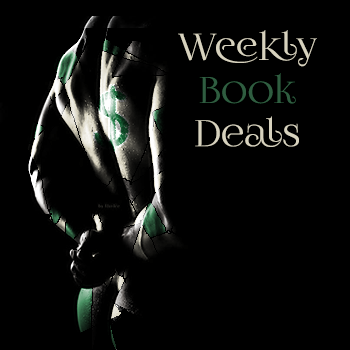
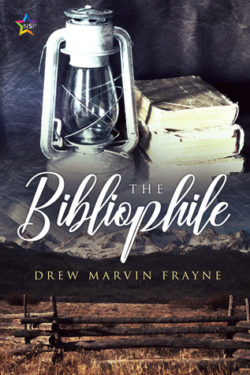

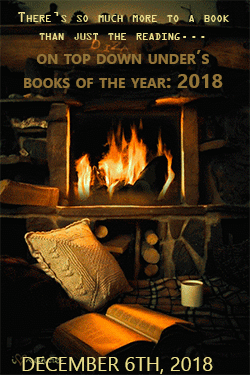
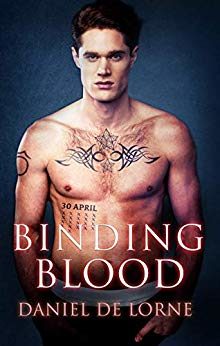
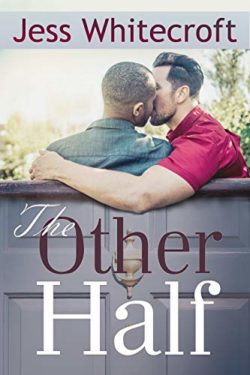
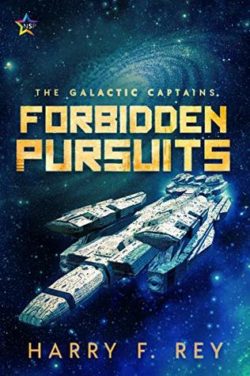
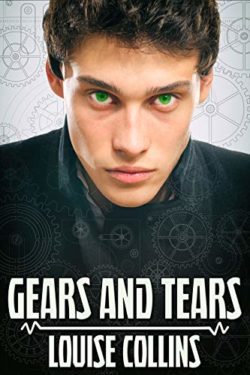
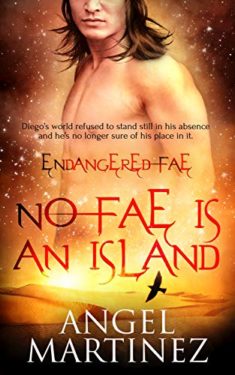
I don’t agree with anybody who says darker and psychological books have no place in romance. Sure they do. Can you imagine having ONLY sweet romance with HEAs to choose from? It would be a lot of the same things in different books. Not all, obviously, but a lot. You and I read different types of books, which is one of the main reasons we’ve worked so well during the 5 years of On Top Down Under’s existence. But while I prefer the happy HEA, even I don’t want that all the time. This is a great post, Kazza. I… Read more »
I find jock/nerd or billionaire, hockey players, tattoo artists, rock stars only take you so far and I am over it – really quickly. Diversity is a great thing and that means sweeter, darker and shades in between should be welcome. Great and new ideas. I really, really wish there were more gay dark paranormal books or urban fantasy but they are like hens teeth. One author wrote a great UF series but bailed because they are now writing full-time and they don’t make money so they have said they won’t finish the series any time soon – and the… Read more »
I’m right there with you in liking darker books, though “dark” is one of those words that every reader seems to have a different definition for, and I think there are different types of dark, but anyway that’s not the point of the post lol. I definitely don’t think dark books are getting more attention than sweet HEA ones. I’ve seen too that the fluffy books are the tones that seem to get the most love. But yeah, for me, generally speaking, it’s the dark books that make me feel emotions, that make me connected, that pull me in so… Read more »
Dark is subjective, I agree with you. I have read books I consider to be easy reading and some people have noted in reviews that they found them confronting or scary in some way. I think it’s a good post for your blog some day. I have written two posts? this year and that is enough for me, lol. Easy breezy and contemporary, sometimes easy breezy paranormal/UF, get a lot of the loving from a lot more reviewers, so it ticked me off to see authors having that opinion. Mind you, if you write a certain style of book then… Read more »
Yeah I’m often disappointed by books that a lot of people say are dark, but then I read it and to me it’s light lol. I actually had an idea for a post to talk about some words we use a lot in book blogging but that are subjective and everyone seems to have diff definitions, and “dark” is one of those words. I haven’t actually written the post yet though, so… It’s odd, your character obsession makes you dislike series, but for me it’s why I prefer series. It usually takes me multiple books to truly get into characters.… Read more »
Darker stories have their place and not all romances have to be kitten and rainbows and happy endings. It isn’t always that way in RL so for someone to say there’s no place for it in romance stories is quite misguided. It’s like saying lets ignore all the ugly things in the world because that stuff doesn’t really happen. I like darker stories it teaches readers things and let’s them see and experience emotionally something that they may never have before or can relate to in someway.
It’s great to have options in reading. Or course you’re right, life is not always kittens and rainbows and some of the best books ever written have reflected contemporary times and their difficulties – The Diary of (Anne Frank) a Young Girl springs to mind.
That’s such a good point, people reading about something that is reality based or psychological in nature can perhaps help readers relate to, or at least really think about, some circumstances and people’s lives that are different to theirs.
You go gurl. I agree 100%, but you said it so much better than I could. Thank you for your eloquence and giving all the T.
Thanks Purple Reader 🙂 All the T, lol.
Kazza, I have appreciated your perspective on darker themes whenever I’ve read your reviews on those books. I’m also someone who enjoys the psychological themes and the thrillers, even if they sometimes mess me up. But I’m messed up over a fictional world, so there’s a safety there. I can explore those emotions in a, let’s say, simulation. I read one this week that had a “happy ending,” but I was so emotional over what happened with the side character. I could explore my feelings about the injustices in our real world with a buffer because it was a fictionalized… Read more »
Well said, Kazza. I really appreciate your post because there are times I like to read darker books, too. That doesn’t make me a bad person. It doesn’t make me want bad things to happen to people in real life. It is fiction and I can separate the two. I like reading about complex characters and the decisions they make…the good and the bad. Sometimes very bad. I like to have an insight into how a sociopath’s mind works. I find these kinds of characters fascinating. That’s why I like Nicole Castle’s Chance Assassin series and The Mako Shark books.… Read more »
Banshee was one of my favourite TV shows. My books, TV shows and movies don’t differ much 🙂 While I still believe in a degree of authorial responsibility – a reasonable degree of reality and research behind psychology, or, say, a police procedural, or a legal/court case, and obvious sensitivity to disability, culture, gender etc., fiction is just that, a non-reality. Part of that is the freedom to enjoy what you want to enjoy. There are people who try to rain on other people’s fantasy parade, whether that be books or in real life. I’ve seen that first hand in… Read more »